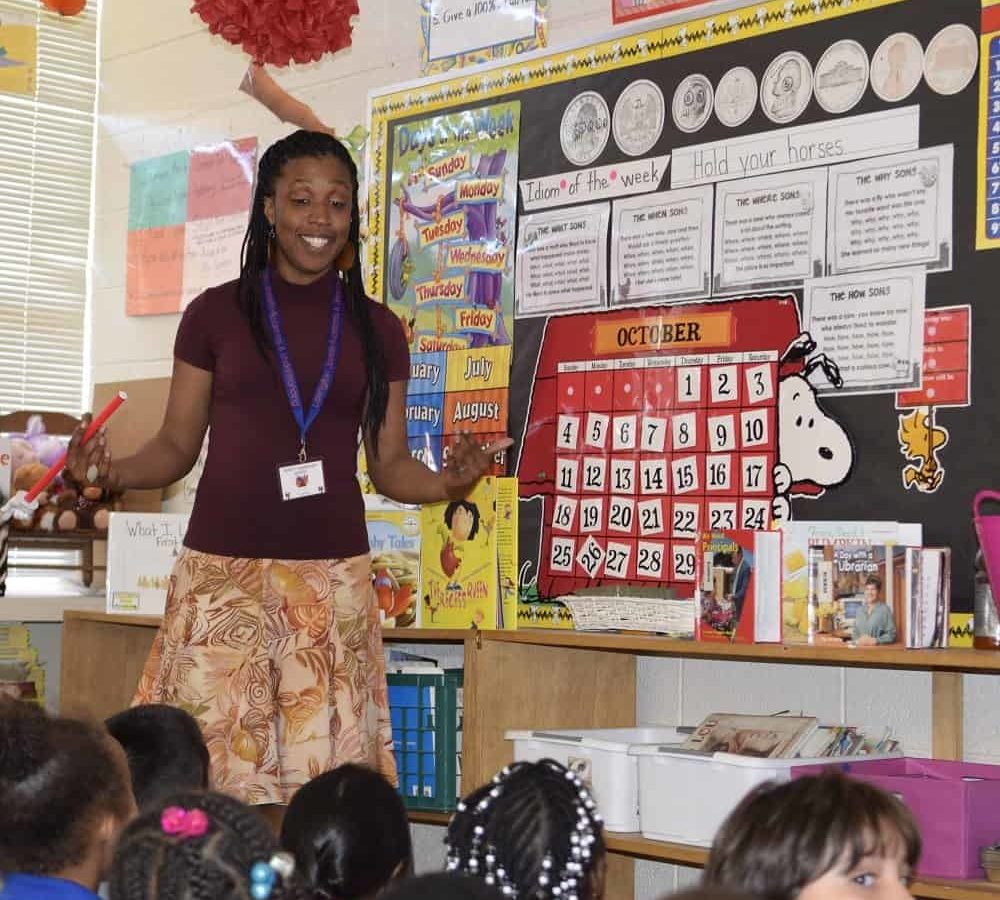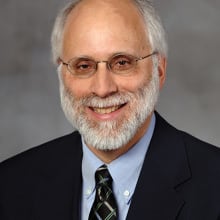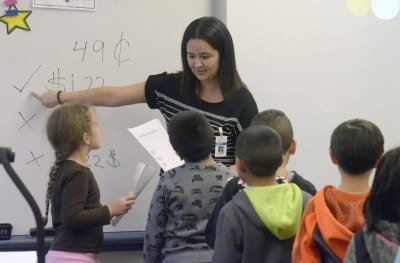

A teacher education student recently told me about someone who questioned why she needs to attend college for four years in order to teach first graders. The implication was that teaching isn’t difficult and little preparation is needed for it. One increasingly hears such views, as woefully uninformed as they are about the complexities of teaching.
For many who are not teachers, it may seem simple. Here is a boy or girl, of whatever race, fluent in English, neatly dressed, well fed, eager to learn. A knowledgeable teacher delivers a well-organized lesson, telling the student what she or he needs to know. The student listens carefully, scribbles some notes, and in a week and again later in the year fills in test bubbles to show that she or he remembers (and presumably understands) what was taught.
This seemingly straightforward interaction is fraught with complications that begin before the teacher and student meet in the classroom.
A child’s education begins in the contexts of families and communities, where they develop knowledge, abilities, and interests. To teach well, it helps to know what the child understands and can do. While this is difficult enough for one child, it becomes exceedingly complex for 30 in the elementary classroom or 150 in the course of a middle or high school day.
Also, each teacher is the product of her or his own experiences, but students represent diverse ones. This in a profession that remains dominated by white, middle-class individuals and yet populated by students from various racial, ethnic, and religious backgrounds, children who bring to the classroom many different cultural traits, resources, concerns, etc. With “minorities” now constituting 45 percent of the K-12 population and the number of middle-class families declining, teachers need to be prepared to understand, appreciate, and address the fullness of human diversity.
Besides demographics, other contextual factors directly affect school policies and practices. For example, public officials influence what to teach and how to evaluate student learning and teacher performance; scholars, business leaders, and others posit the understandings and skills most vital for 21st-century living; court cases determine search-and-seizure procedures and appropriate contact with students; and so on. Thorny social and political issues do not simply reside outside the classroom; in complicated ways, they are a constituent part of them.
There are the subjects themselves, so immense and evolving that our own knowledge of them is necessarily flawed and partial. It is difficult enough when teaching a few content areas, as when I taught high school U.S. history, sociology, and anthropology. What does it take to be competent in literature, writing, mathematics, natural sciences, social sciences, etc. for the elementary grades, as well as instructing children on “how to behave”?
A large body of educational research, dating back 100 years, is also critical for teachers to know.
There are differing views about the very purposes of formal education, not about what we should do in the classroom but who we want our students to be when they leave school; how children and adolescents learn best; which types of plans to adopt for organizing one’s teaching; which instructional strategies are best to use among many possibilities; how to assess student learning; how best to manage a classroom in terms of seating arrangements, rules of conduct, scheduling of activities, and knowing when to stay on task and when to be more flexible; what grouping strategies enhance rather than stifle learning for individual children; how best to communicate with parents and other family members, as well as colleagues and community members; which textbooks, other classroom materials and technologies, from among all those peddled by commercial companies, can best foster learning; how to motivate reluctant and recalcitrant children; and so forth.
The many economic, environmental, technological, and other challenges of the 21st century further complicate teaching. More than ever, we need educators who are flexible and creative in their teaching and learning; skilled in collaboration; understanding and appreciative of democratic living; engaged and skilled in critical inquiry; and curious about the world.
What we also need are not more punitive regulations and blaming, scolding and mistrust, but, rather, more encouragement of innovation, opportunities for continued learning, mentoring and collaboration, and respect and dignity (if not increased salaries).
Only under such conditions will it make sense to have higher expectations for those who devote their lives to providing what we’ve known since the days of Thomas Jefferson to be the cornerstone of a democratic society, a high quality public education for all its children.
This perspective was originally published in StarNews Online on March 19, 2012. It is reprinted here with the author’s permission.


